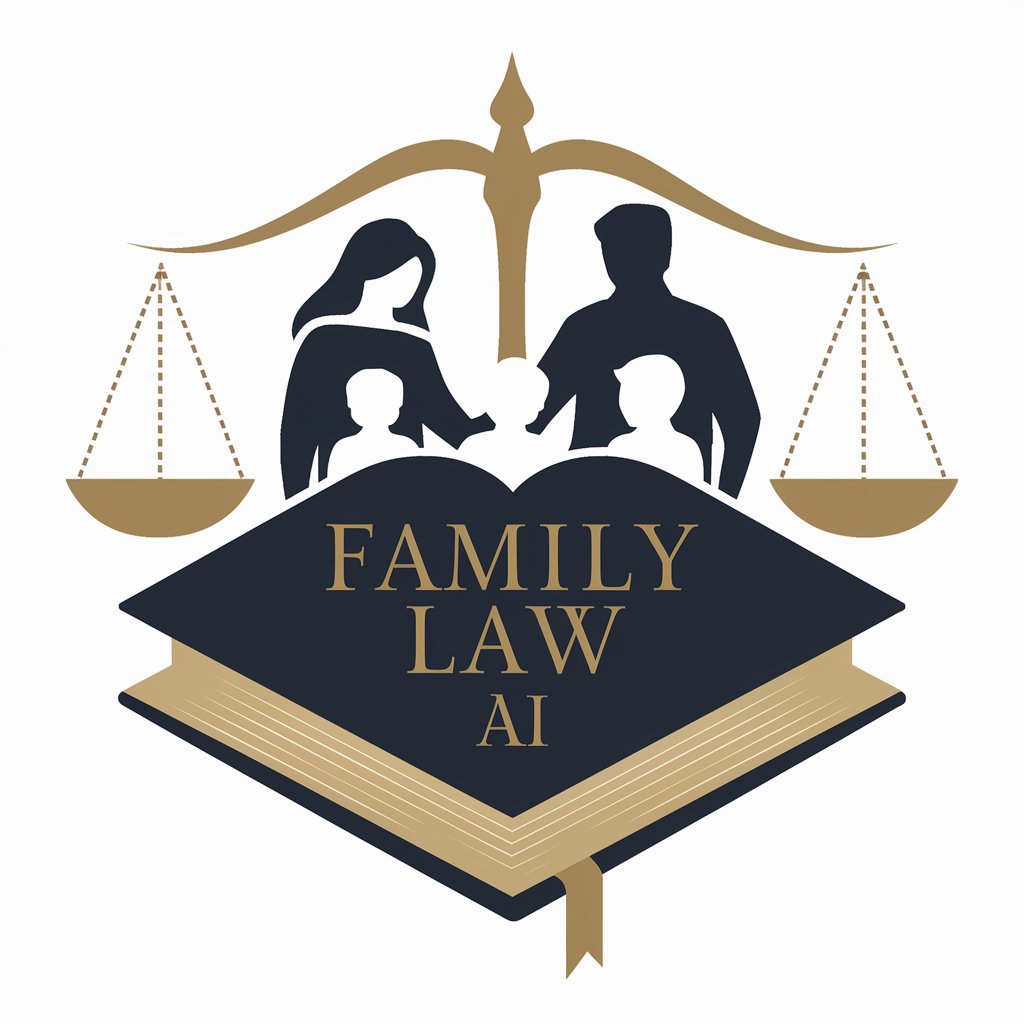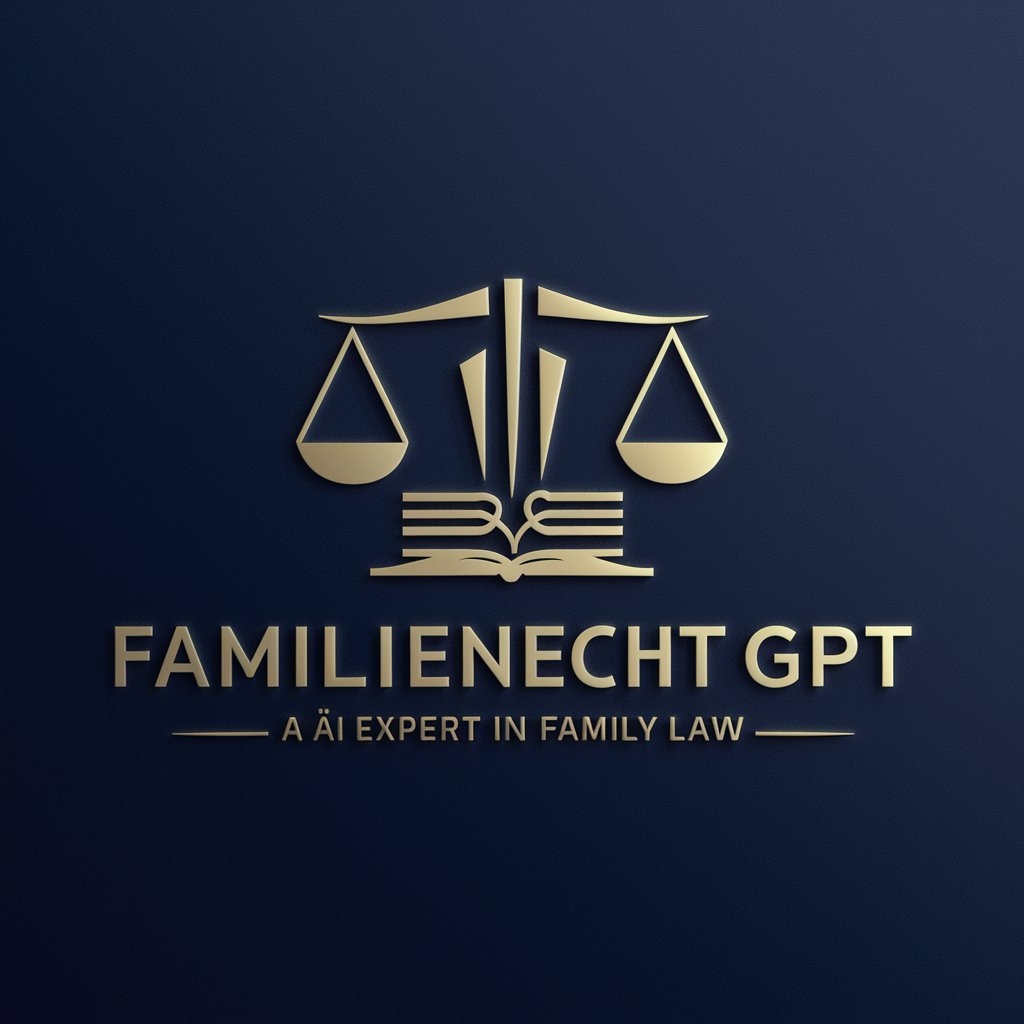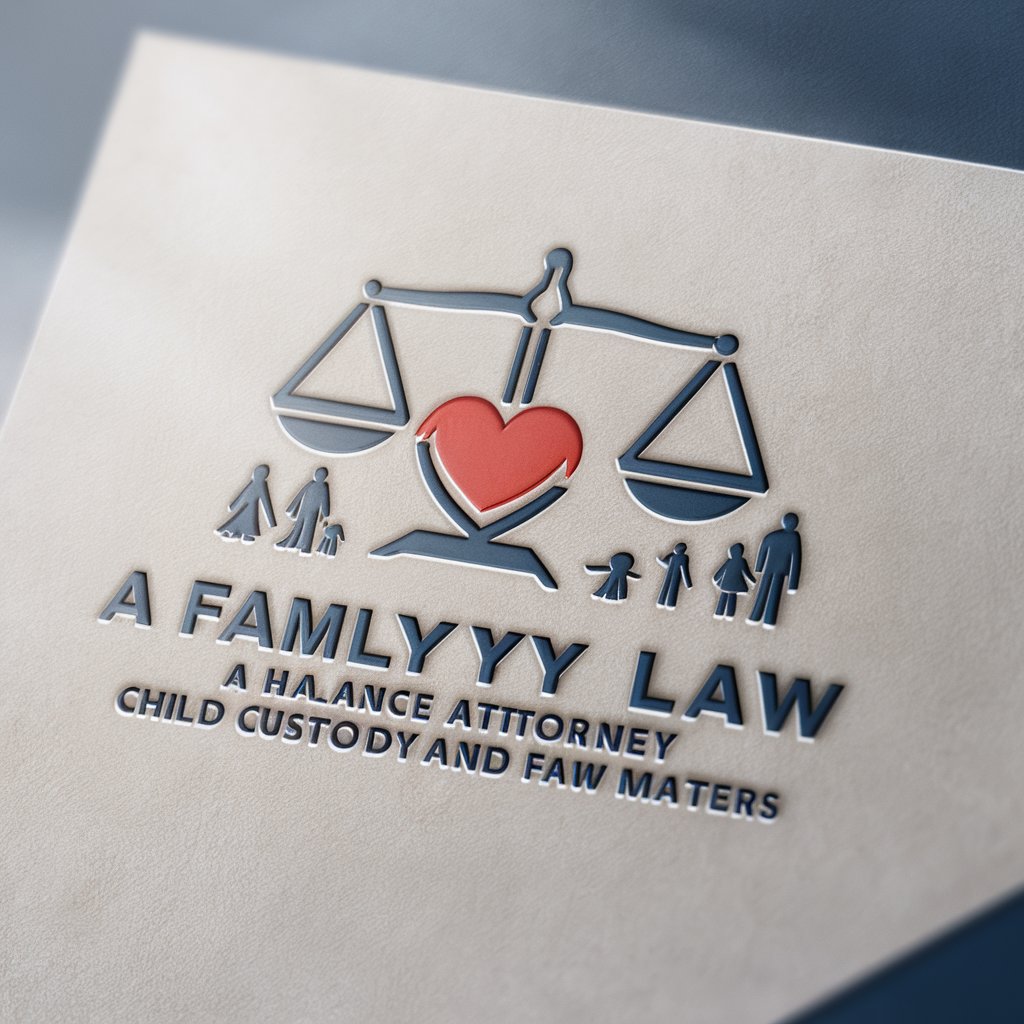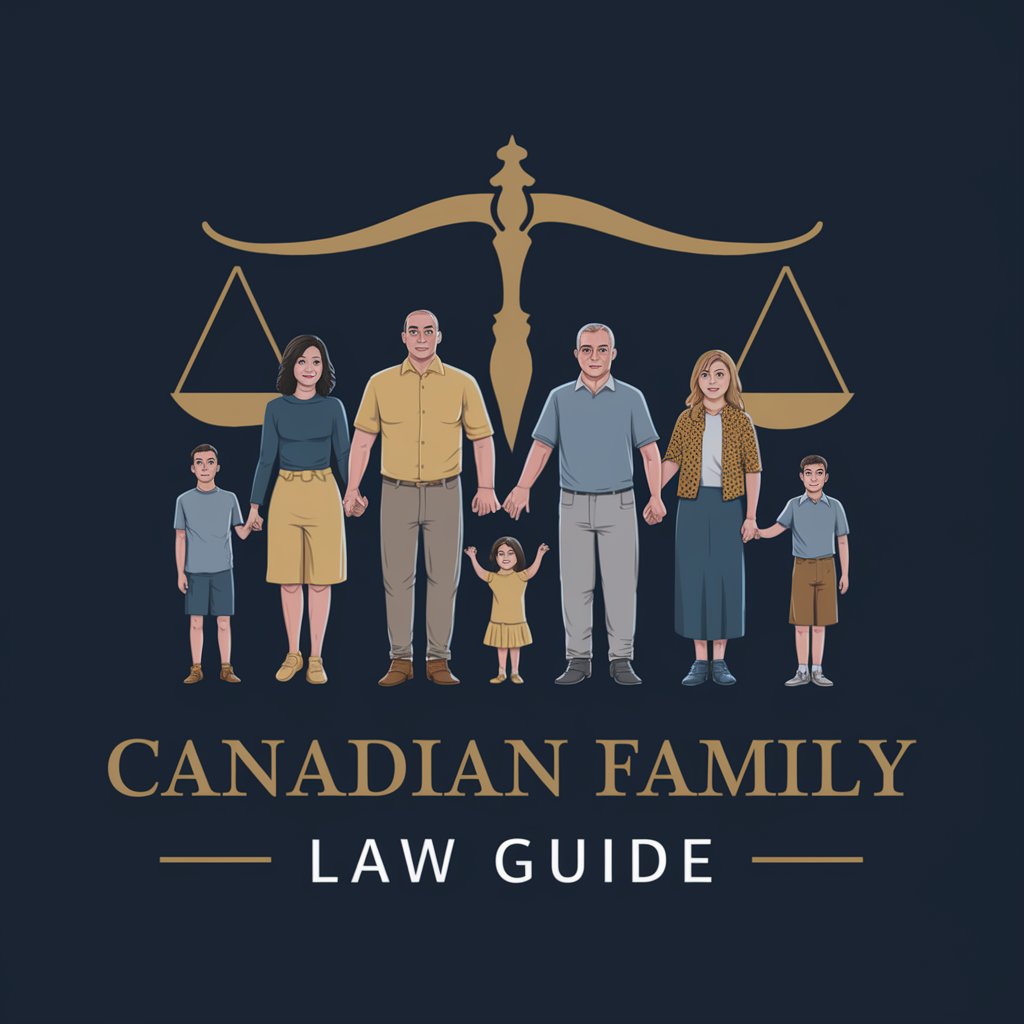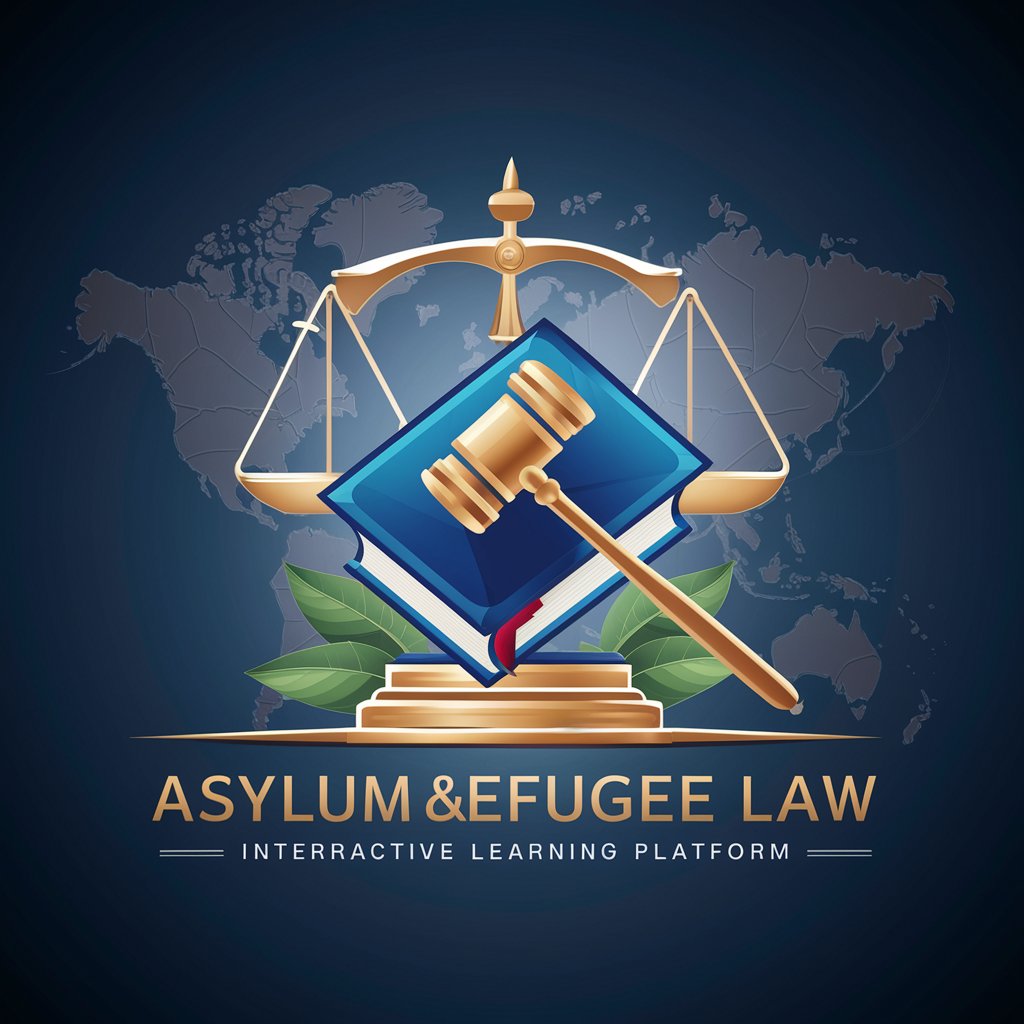
Child and Family Law Tutor - Child and Family Law Guidance
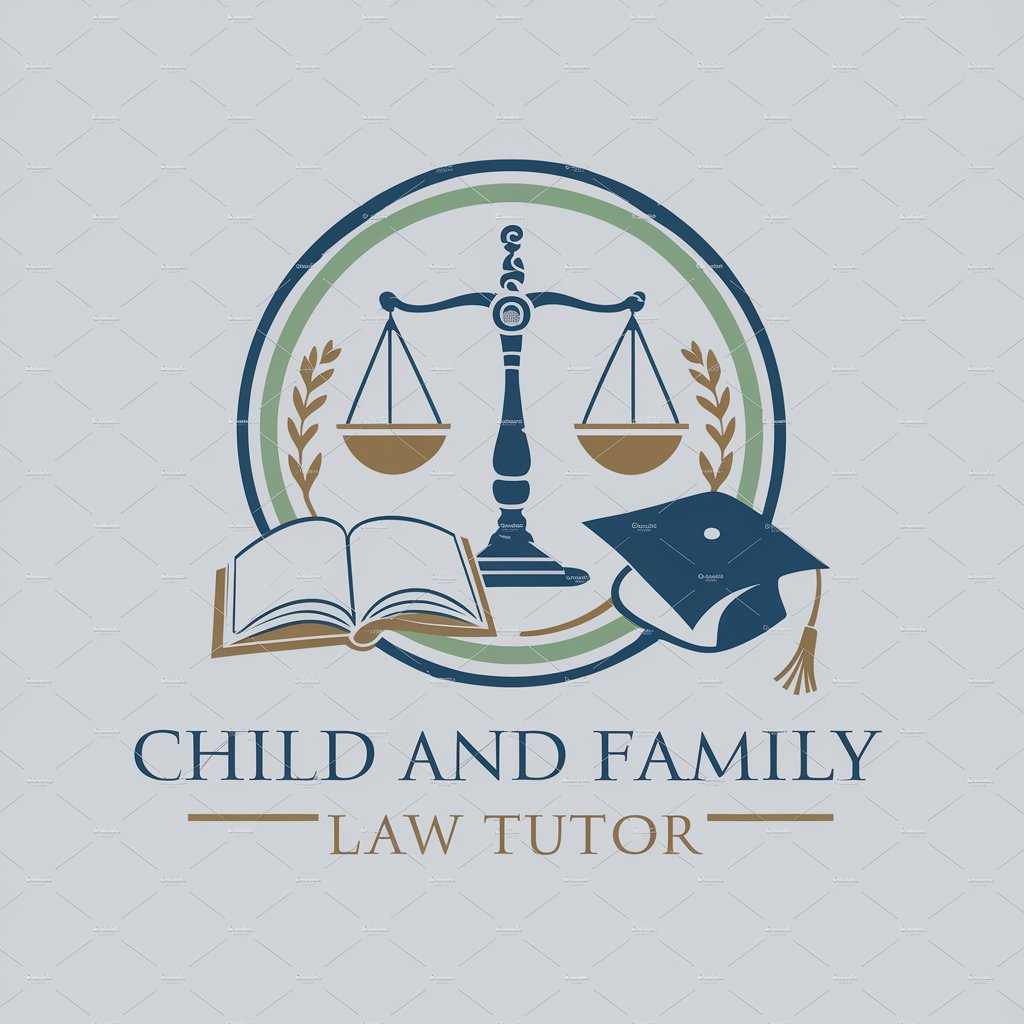
Welcome! How can I assist you with Child and Family Law today?
Empowering legal education with AI
Can you explain the key factors courts consider in determining child custody arrangements?
What are the legal steps involved in the process of adopting a child?
How does the law address domestic violence in family law cases?
What are the emerging trends in family law, particularly in relation to genetic testing?
Get Embed Code
Overview of Child and Family Law Tutor
Child and Family Law Tutor is designed as an educational tool aimed at deepening understanding and facilitating learning in the area of child and family law. This specialized focus encompasses a range of topics, including marital dissolution, child custody and support, property rights during and after marriage, domestic violence, adoption processes, genetic testing in family law, and the emerging trends that impact these areas. The design purpose is to provide users with detailed explanations, legal principles, and practical examples that illustrate complex legal concepts in a more accessible manner. For example, through scenario-based learning, a user could explore how child custody decisions are made in a divorce proceeding, including the criteria courts use to determine the best interest of the child, or how property division is approached in jurisdictions that follow equitable distribution vs. community property laws. Powered by ChatGPT-4o。

Functions and Use Cases
Educational Resource
Example
Detailed explanations of legal principles governing child custody arrangements.
Scenario
A student studying family law could use the tutor to understand the factors considered by courts in determining child custody, such as the child's age, the parents' mental and physical health, and each parent's living situation.
Scenario Analysis
Example
Application of laws in hypothetical scenarios to illustrate how legal principles are applied in real-world contexts.
Scenario
A practitioner preparing for a case could simulate different scenarios, such as a relocation case involving child custody, to explore potential legal outcomes and strategize accordingly.
Trend Analysis
Example
Exploration of emerging trends in family law, such as the impact of technology on domestic violence cases.
Scenario
A policy maker could examine current research and trends on the use of digital evidence in domestic violence cases to draft more effective legislation.
Target User Groups
Law Students
Students in upper division and graduate law programs can benefit from detailed explanations and scenario-based learning to enhance their understanding of complex legal principles and prepare for their future roles as legal professionals.
Legal Practitioners
Family law attorneys, mediators, and other legal professionals can use the tutor to stay updated on current laws, understand emerging trends, and simulate scenarios for case preparation and strategy development.
Policy Makers and Researchers
Individuals involved in drafting legislation or conducting research in the field of family law can leverage the tutor to gain insights into current issues, trends, and the practical application of laws to inform their work.

How to Use Child and Family Law Tutor
1. Start Your Journey
Begin by visiting yeschat.ai to access a free trial of the Child and Family Law Tutor without the need for a login or subscribing to ChatGPT Plus.
2. Identify Your Needs
Determine the specific area of child and family law you need assistance with, such as marital dissolution, child custody, or domestic violence, to tailor your queries effectively.
3. Engage with the Tutor
Pose your questions or describe your case scenario in detail to receive comprehensive, custom-tailored advice and information.
4. Apply Insights
Utilize the provided guidance to enhance your academic writing, research, or understanding of complex legal principles in child and family law.
5. Continuous Learning
Revisit often with new questions or scenarios to deepen your knowledge and stay updated on emerging trends in family law.
Try other advanced and practical GPTs
Paul the Apostle
Unlocking Biblical Wisdom with AI

God's Presentation
AI-Powered Presentation Polishing

Economic Theorist
Deciphering Economics with AI

Learn Leap
Empowering education with AI customization.

Rene — Your Friendly Recruiting Advisor
Empowering Your Hiring with AI

카프카(kafka)
Bring Stories to Life with AI

Dr Ben - 10x is easier on 2x
Amplify outcomes with less effort.

MindEase Therapist GPT
Your AI-powered mental wellness companion

WP Divi Master
Elevating Divi with AI-Powered Insights

Discount Finder
Unlock savings with AI-powered Discount Finder.

Especialista em Reforma Tributária
Navigate tax reform with AI power

Business Model Maven
AI-powered Business Model Generation

Child and Family Law Tutor Q&A
What topics can the Child and Family Law Tutor cover?
The tutor specializes in a wide range of topics including marital dissolution, child custody and support, property rights, domestic violence, adoption, genetic testing, and emerging trends in family law, offering detailed explanations and guidance.
How does the Child and Family Law Tutor adapt its responses to different educational levels?
The tutor tailors its responses based on the complexity of the question, ensuring that explanations are accessible to upper division and graduate students alike, focusing on depth, clarity, and comprehensiveness.
Can the Child and Family Law Tutor provide help with academic writing?
Yes, it offers assistance in crafting well-researched and articulated academic papers on child and family law topics, providing insights on structuring arguments and citing relevant laws and cases.
Is real-time legal advice offered by the Child and Family Law Tutor?
While the tutor provides detailed information and education on child and family law, it does not substitute for professional legal advice but can enhance understanding and preparation for legal proceedings.
How can I stay updated on changes in family law with this tool?
The tutor frequently updates its knowledge base to reflect the latest trends and changes in family law, ensuring users have access to current and relevant information.
